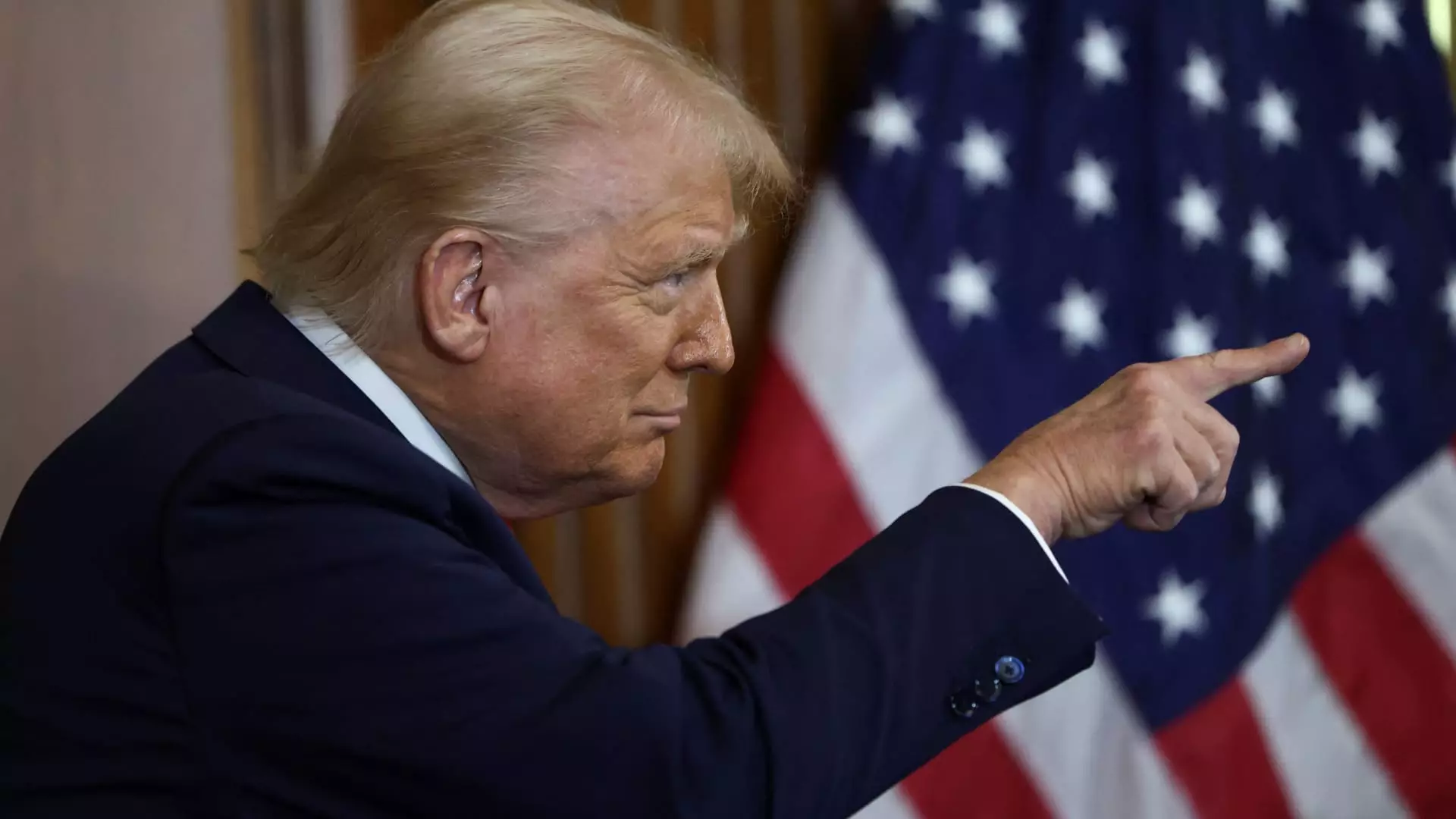In the unpredictable landscape of American politics, few subjects incite heated debates as fervently as taxation. Recently, former President Donald Trump, who once championed tax cuts for the wealthy through his Tax Cuts and Jobs Act (TCJA), flip-flopped on his stance, proposing a tax hike for the richest Americans. This comes amidst a backdrop of mounting financial challenges faced by the Republican Party in terms of funding their expansive spending and tax agenda. The paradox is glaring: Trump, once the herald of tax breaks for the prosperous, is now urging Congress to revert the top tax rate for individuals earning over $2.5 million from 37% back to 39.6%.
This proposal raises essential questions about ideological consistency and fiscal responsibility. What is the underlying logic of taxing the wealthiest, a group that Trump’s policies historically favored? It’s a significant pivot that could signify an awakening to the realities of fiscal imbalance.
Contradictions and Confusion
Trump’s suggestion, while perhaps politically strategic, is rife with contradictions. During a private phone call with House Speaker Mike Johnson, Trump urged for an increase in taxes on the highest earners and the closure of tax loopholes like the carried interest provision—a move that enjoys scant support among his fellow Republicans. His stance seems like an odd admission that the TCJA, celebrated by many in the GOP, may have been a step too far when it comes to inequality.
The initiative also exposes an internal conflict within the Republican Party. Trump’s audacious remarks on social media, indicating that he would “graciously accept” a tax increase for the affluent, juxtapose the party’s long-standing mantra against increased taxation. The question lingers—are Republicans willing to overlook traditional party lines for the sake of fiscal prudence or political survival?
The Reality of Revenue Needs
To understand the gravity of Trump’s tax proposal, one must consider the financial backdrop. The ambitious multi-trillion-dollar spending package that lawmakers are wrangling over requires substantial revenue. According to Natasha Sarin, the president of the Yale Budget Lab, current proposals simply do not equate to the income necessary to fund them sustainably. These glaring revenue shortfalls can no longer be brushed aside, especially given the fact that many of the tax cuts established by the TCJA are set to expire by 2025.
Some political analysts would argue that Trump’s tax hike proposition is less about genuine concern for the lower and middle classes and more about a tactical move to secure funding for those same demographics through an equitable taxation system. By shifting the burden slightly back to the wealthy, he could effectively rally support from disenchanted constituents who feel the brunt of income inequality.
Reaction and Resistance from the GOP
Interestingly, Trump’s proposition has sparked a divisive debate within the Republican ranks. As Trump himself remarked, “Republicans should probably not do it,” which marks an unusual admission for a figure known for his unwavering obstinacy. The hesitation displayed by party members signifies a critical turning point; do they adhere to their traditional ideologies of reducing taxes, or do they prioritize the public’s pressing needs for social services and healthcare?
The resistance to Trump’s proposal reflects the cautious, sometimes reactionary nature of contemporary Republican politics. Will the party continue to back the ultra-wealthy, or will they confront the uncomfortable truth that their fiscal policies may have contributed to growing disparity among American families?
Long-term Implications: A Wounded Party or a New Path?
If the GOP chooses to adopt Trump’s seemingly contradictory stance, it may redefine their identity amidst shifting societal values. The relationship between money, power, and influence in politics is precarious, and Republican lawmakers must reckon with the reality that America’s public is clamoring for a more equitable system of taxation.
This tax proposal may not only provide financial relief to struggling families but also challenge the GOP to evolve and embrace a more inclusive perspective. However, that growth will come at a price—the internal divisions could potentially derail the party’s unity if moderates and conservatives can’t find common ground.
The current tax debate is emblematic of a party in flux, grappling with its historical commitments while facing the undeniable fact that times—and the expectations of voters—are changing. Whether Trump’s proposal receives traction or not, the ramifications will resonate far beyond numbers on a spreadsheet.

